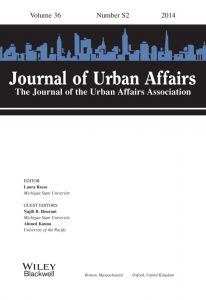Who might run the show in a post-cash world?

Is cash on the way out? In my own daily routines, I find myself using coins and notes less and less, to the point when I am often stuck for a pound coin to use the lockers at the swimming pool, or I audibly ‘tut’ when shopkeepers tell me there’s a charge for using my card. I just don’t carry cash very often. In fact, I don’t even physically use my debit card very often. I’ve got so used to using my phone or computer to buy stuff that I’ve learnt my 16-digit card number off by heart – a ‘skill’ which is either impressive or just a bit worrying.
Maybe this is a sign that I’m moving up the social hierarchy. After all, using less cash is associated with higher socio-economic status according to the Payment Council, so perhaps I’m moving up the foodchain. Or, as I’ve often feared, I’m not that special at all. This is a change which is affecting most people as we move into a world of contactless payments and methods of moving money around which might shake up those much-beloved institutions: The Banks.
When it comes to transport, paying without cash is hardly a new thing in most big cities. London has Oyster card, Seoul has T-Money card, New York has Metrocard. I’m sure there are dozens of others. Soon it’s likely that these will largely be obsolete as transport becomes a testing site for contactless bank card payments. By getting us used to paying for transport with our cards, credit card companies hope that we’ll want to use them for other purchases as well, creating a demand for retailers to install contactless payment machines in shops, bars, petrol stations and restaurants everywhere else.
But even contactless card payments may soon be superceded by just using our phones. You might already use something like Barclays ‘Pingit’ app for quickly transferring money between users. For actually buying stuff in stores, 2015 will see Apple Pay for iPhone and Vodafone’s Mobile Wallet for Android enter the market. According to Mark Ritzmann, head of m-commerce at Vodafone, the smartphone “will start to replace the leather wallet”.
This all seems pretty tech-whizz-exciting doesn’t it, until you realise that mobile payments have been around for ages in that global financial hub called er… Africa. In Kenya and Tanzania, the wildly successful M-PESA service has become the most successful mobile phone-based financial service in the developing world. Launched in 2007, M-Pesa works with users buying ‘credit’ from registered outlets, many of which are located in small village shops. This credit is then assigned to the SIM card on a user’s phone (it doesn’t need to be a smartphone), and then the user can send credit to other user, just like writing a text message. Its simplicity has meant that is become hugely popular in parts of the world that are largely rural and where access to the internet or physical bank branches is difficult. People use M-Pesa to pay bills, transfer money around and even set up and manage loans.

By Realt0n12 (Own work) [CC BY-SA 3.0 (http://creativecommons.org/licenses/by-sa/3.0)], via Wikimedia Commons
“The regulator in Kenya was a relatively benign supporter of what we wanted to do, but the banks in the other markets have worked really hard to try and prevent a network operator having such a dominant position in what they believe is a financial instrument rather than a service. In the US and Europe, there’s been long conversations about putting money on your phone but who owns that? That’s been a big tussle which is still ongoing.”

By Bitcoinula (Own work) [CC BY-SA 3.0 (http://creativecommons.org/licenses/by-sa/3.0)], via Wikimedia Commons
Bitcoin is perhaps the most interesting development of all. Untied to central banks, it is effectively a new currency, a so-called ‘cryptocurrency’. In only 5 years it’s already attracted around 2 million users. WordPress, Expedia and Microsoft all accept payments by bitcoin now, some salaries are even paid in bitcoins. Some people, like a cousin of mine, just keep a bitcoin account as a kind of geeky experiment. But Dixon argues that in the future, bitcoin may provide the foundation for open-source forms of banking which, much like apps or software, might undermine the hegemony of the big banks as time goes on.
“In the future, most people will be using Bitcoin and not know they are actually using it. So I will be paying you in pounds, and that will be transported using the benefit of Bitcoin, and then that will be converted back to pounds without you knowing you’re using it. With skype, they said let’s put our version of a phone onto the internet, and they called it the Voice Over IP, in the future Money Over IP will be used – MOIP. And Bitcoin is highly likely to be the rails whereby you can transport it – you don’t need the bank in the middle, and you don’t need all the bonuses and fees being paid in the middle in order to make that transaction now…. You probably won’t even know you’re using the network but it will pay you in a way you’ll understand.”
Thomas Jefferson said that “I sincerely believe that banking establishments are more dangerous than standing armies.” Given everything that’s happened since the 2007-8 crash, many of us might be inclined to agree with him. Just as digital technology has disrupted industries of journalism, retail, and the creative industries, perhaps it might also pave the way to the democratization and decentralisation of the big one: Banking. The question then arises: who will you trust to look after your money when it’s not pound coins in your pocket, but bitcoins on a screen?






1 Response
[…] Who might run the show in a post-cash world? […]